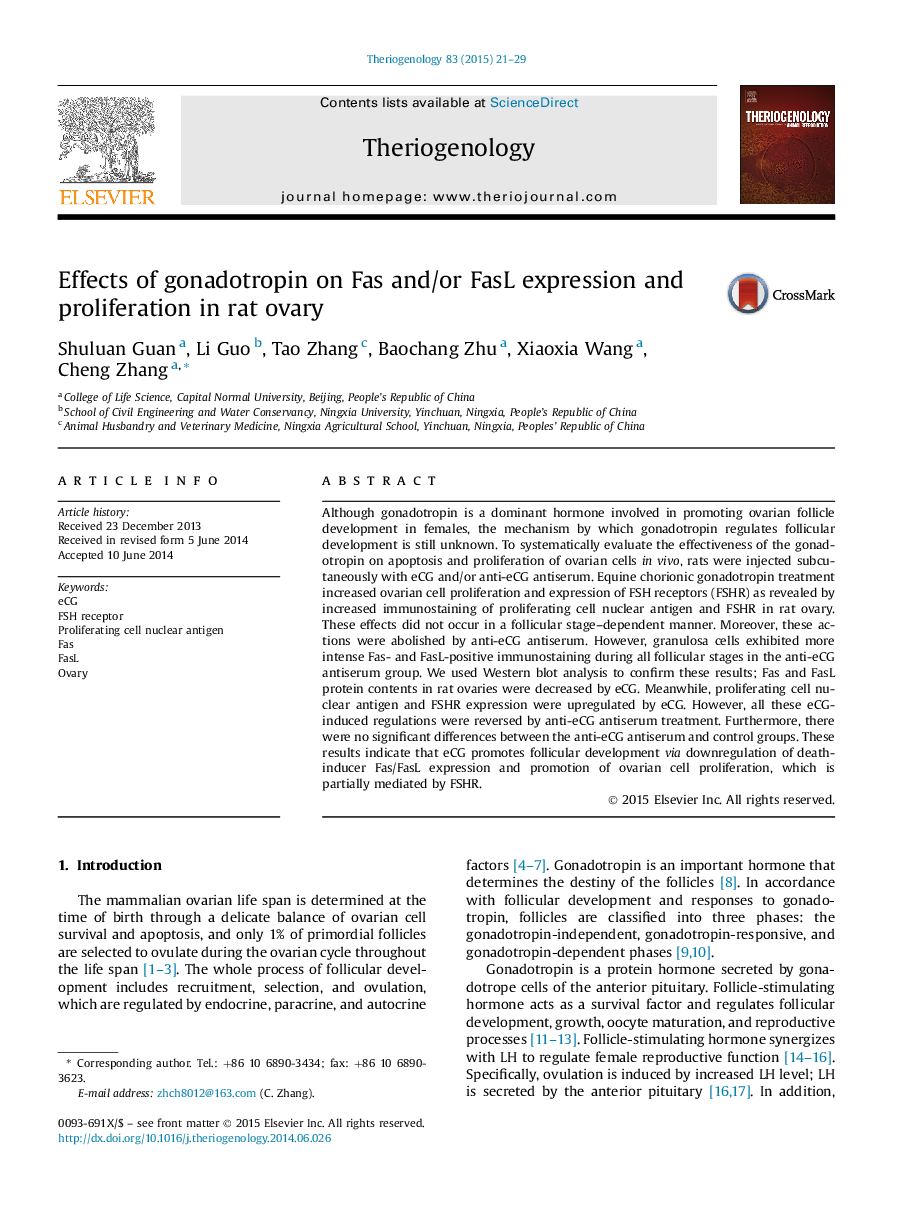| Article ID | Journal | Published Year | Pages | File Type |
|---|---|---|---|---|
| 2096246 | Theriogenology | 2015 | 9 Pages |
Although gonadotropin is a dominant hormone involved in promoting ovarian follicle development in females, the mechanism by which gonadotropin regulates follicular development is still unknown. To systematically evaluate the effectiveness of the gonadotropin on apoptosis and proliferation of ovarian cells in vivo, rats were injected subcutaneously with eCG and/or anti-eCG antiserum. Equine chorionic gonadotropin treatment increased ovarian cell proliferation and expression of FSH receptors (FSHR) as revealed by increased immunostaining of proliferating cell nuclear antigen and FSHR in rat ovary. These effects did not occur in a follicular stage–dependent manner. Moreover, these actions were abolished by anti-eCG antiserum. However, granulosa cells exhibited more intense Fas- and FasL-positive immunostaining during all follicular stages in the anti-eCG antiserum group. We used Western blot analysis to confirm these results; Fas and FasL protein contents in rat ovaries were decreased by eCG. Meanwhile, proliferating cell nuclear antigen and FSHR expression were upregulated by eCG. However, all these eCG-induced regulations were reversed by anti-eCG antiserum treatment. Furthermore, there were no significant differences between the anti-eCG antiserum and control groups. These results indicate that eCG promotes follicular development via downregulation of death-inducer Fas/FasL expression and promotion of ovarian cell proliferation, which is partially mediated by FSHR.
